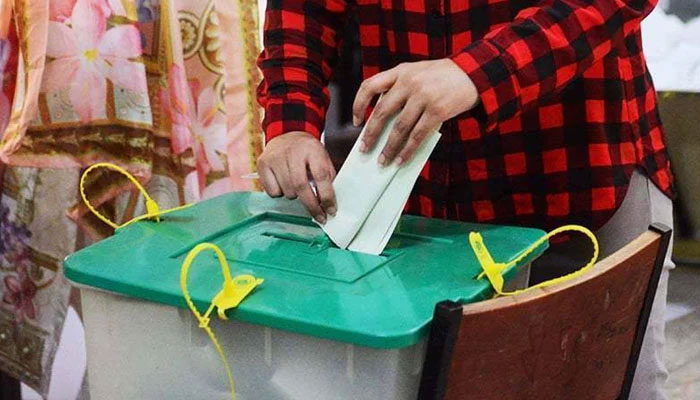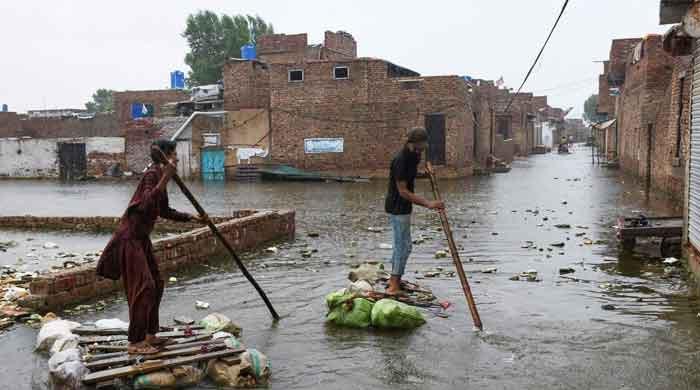Poor reality, poor image
Pakistanis are too busy, worrying about the image of the country and hoping that their preferred leader will fix it all
February 01, 2024

Every Pakistani has, at some point or another, expressed his or her frustration with the country’s poor image. Millions of Pakistanis work all over the world and have built a reputation for hard work and efficiency.
Overseas Pakistanis are particularly sensitive to adverse comments about anything to do with Pakistan and get upset when their country is portrayed as ‘dangerous’, ‘dysfunctional’, or ‘unstable’ in the international media.
Their reasoning often is that because they and their friends and family are all decent people, the bad image of Pakistan must solely be the function of the malice of international powers or the malfeasance of Pakistani leaders they dislike. But Pakistan’s problem is not just one of image. It is also one of harsh realities.
How can we expect the world to ignore distressing events that characterise the country’s history or the present? After all, historical accounts and media reports are rarely mainly about the niceness, hospitability, or piety of individuals from a country. It is about social and economic indicators, the exercise of power within and outside the country by its rulers and matters of war and peace. Dismissing unflattering analysis as ‘anti-state’ or ‘foreign-inspired’ shuts the door for course correction.
Doctors, engineers, and bankers, as well as cab drivers and industrial workers who live and work abroad, have been fed a narrative for years about how their contribution to Pakistan’s greatness is squandered by the mistakes of one or another politician. As a result, few have been able to understand that Pakistan’s problems and poor image are the product of collective mistakes over a large time span. It is not because of politician A or B but about not having a functioning political system, the absence of a culture of tolerance, and an inability to prioritise economic progress over conflict with others.
Partisan politics blinds people to difficulties with deep roots. Overseas Pakistanis applauded, based on their party sympathies, when Mohtarma Benazir Bhutto, Asif Ali Zardari, Yusuf Raza Gilani, and Nawaz Sharif were convicted by Pakistan’s courts. Those currently supporting the Pakistan Tehreek-e-Insaf (PTI) are unhappy that cricket hero Imran Khan has now been convicted and sentenced ahead of a general election. The sad truth is that prime ministers and foreign ministers of countries are their public face to the rest of the world. When they face criminal charges, the country looks bad, and it does not matter to which party they belong.
It is sometimes difficult to get people to think about issues and their solutions instead of focusing on personalities and which ones among them are to blame. Prosecution, conviction, and sentencing of national leaders should be rare. If almost everyone who rises to high office goes through that process year after year, then there is something wrong with the process and national discourse should focus on that rather than just being restricted to the victimisation of X or Y.
Pakistan’s political system lacks the crucial elements of compromise and adherence to rule of law that are essential for a workable political system. Constant political conflict, and its repercussions, are a major factor in Pakistan’s poor international image, along with the presence of Jihadi militants. Other reasons for Pakistan not being portrayed positively lie in our socio-economic circumstances.
Pakistan has come a long way since its creation in 1947 but it lags behind its peers in many ways. This is a harsh reality that needs to be overcome, not just a matter of image. For instance, the literacy rate in Pakistan rose from 11% in 1947 to 58% by 2023. But India’s literacy rate rose from 12% to 76.3% over the same period and for a much larger population. Bangladesh took its literacy rate from 17% in 1971 to 74.6% last year.
Pakistan’s comparatively poorer performance in promoting literacy is not a party-political matter nor can it be blamed solely on the alleged corruption of a set of politicians one dislikes. National pride should not deter Pakistanis from confronting the fact that education has not been their national priority the same way as, say, acquiring nuclear weapons. Pakistan’s problem in education is about bad policy priorities, budgetary allocation, and what Pakistanis choose to teach and learn.
Pakistan is the fifth largest nation in the world by population, and has the seventh largest army, but is only 24th by size of GDP on PPP basis and 46th in terms of nominal GDP.
For almost 15 years after independence, Pakistan made no allocation for literacy in its national budget. Between 1947 and 1957, Pakistan’s literacy rate actually remained unchanged or declined, albeit marginally. The failure was attributed in official reports to ‘unstable administrative and organisational arrangements.’ Even now, there are only 15 countries in the world with a lower literacy rate than Pakistan. The low literacy rate and inadequate investment in education have led to a decline in Pakistan’s technological base, which in turn hampers economic modernisation.
Pakistan’s lack of progress in literacy is not because of poverty; Rather, the country’s poor economic performance is a result of a lack of higher literacy rates. There are 43 countries in the world that are poorer than Pakistan on a per capita GDP basis but 24 of them send more children to primary school than Pakistan does. But as Pakistan heads into its 12th general election, these and similar harsh realities are hardly discussed in the media or by politicians. Pakistanis are too busy, worrying about the image of the country and hoping that their preferred leader will fix it all.
The writer, former ambassador of Pakistan to the US, is Diplomat-in-Residence at the Anwar Gargash Diplomatic Academy in Abu Dhabi and Senior Fellow at the Hudson Institute in Washington DC.
Disclaimer: The viewpoints expressed in this piece are the writer's own and don't necessarily reflect Geo.tv's editorial policy.











